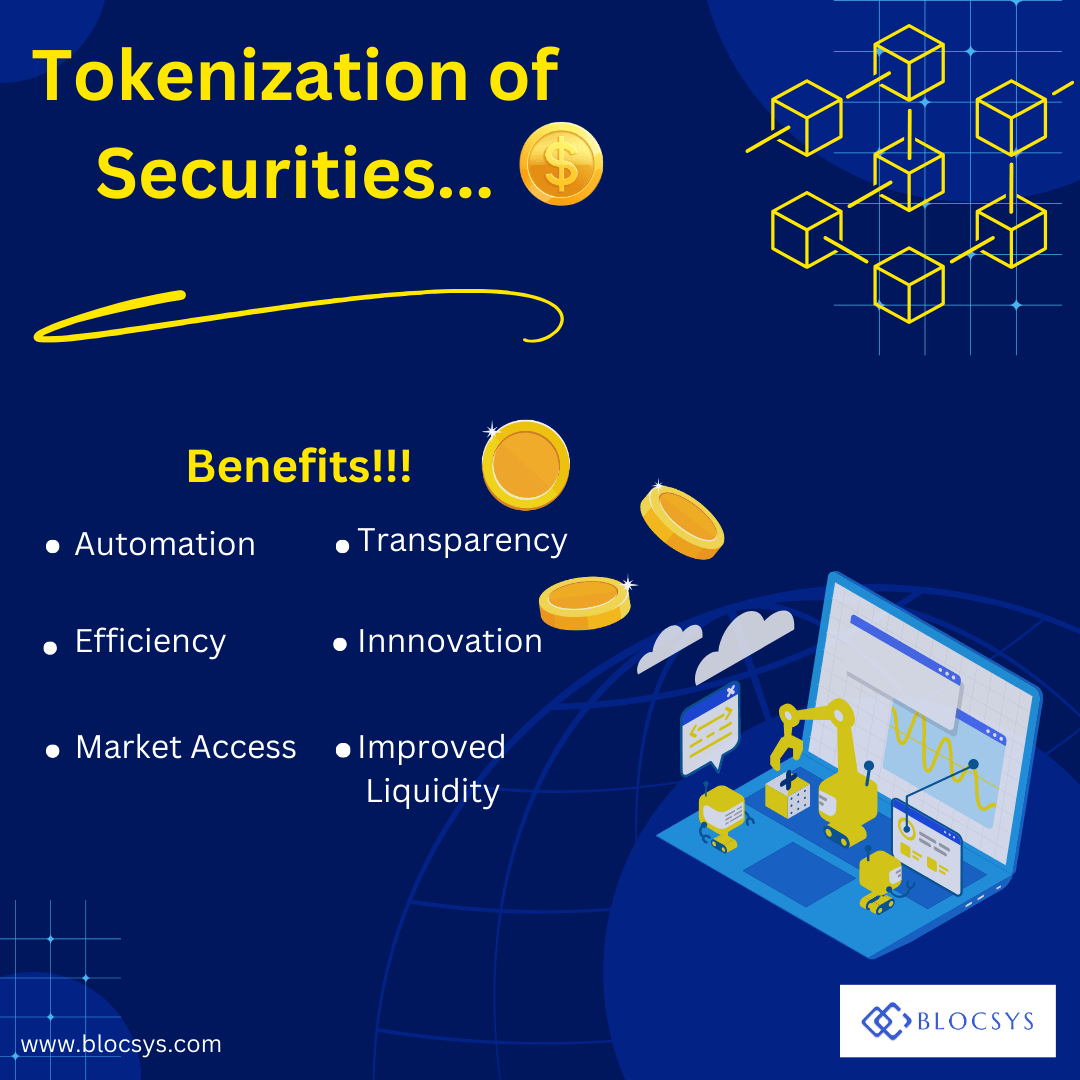“Tokenization of securities” utilizing blockchain technology will be “the next generation of markets.”
The process of transferring ownership rights of tangible assets, such as stocks, real estate, or artwork, into digital tokens is termed as asset tokenization.
When compared to conventional financial markets, what are the advantages of tokenization?
1. Enhanced Accessibility
Fractional ownership is made possible via asset tokenization, which enables investors to purchase and sell smaller shares of valuable assets. By increasing the number of possible buyers and sellers, this improves liquidity and facilitates the trading of assets that were previously illiquid.
2. Inclusivity and Accessibility
As tokenized assets may be split up into smaller pieces, a wider variety of investors — including retail investors who would not have previously had access to more exclusive asset classes — can purchase them. This lowers entrance barriers and democratises investment opportunities.
3️. 24/7 Market Access
Traditional financial markets operate within specific hours and may have restrictions on when and where you can trade. In contrast, asset tokenization allows for 24/7 trading on decentralised platforms, providing greater flexibility and accessibility to global markets.
4️. Reduced Intermediaries and Costs
Tokenization eliminates or reduces the need for intermediaries such as brokers, custodians, and clearinghouses.This improves the efficiency and economy of transactions by reducing transaction costs and fees and streamlining the settlement process.
5.Token Creation
Once the legal aspects are in order, digital tokens are created to represent ownership in the asset. These tokens are often created as blockchain-based assets using technologies such as Ethereum’s ERC-20 or other token standards.
6. Smart Contracts
Smart contracts are frequently used to automate and uphold security regulations. They are able to manage ownership responsibilities such as voting rights, dividend payments, and others.
7. KYC & AML
Issuers frequently demand that investors undergo Know Your Customer (KYC) and Anti-Money Laundering (AML) procedures in order to confirm their identification and make sure they abide by legal regulations.
8. Liquidity
Tokenization can enhance the liquidity of traditionally illiquid assets like real estate. Investors can trade their tokens on secondary markets, making it easier to exit their positions.
About Blocsys:
Blocsys is a leading blockchain development and consulting firm established in 2021, specializing in Defi, Dapps, NFT, and smart contracts, Blocsys offers a comprehensive range of services from initial business analysis to final product delivery, all while adhering to the highest testing standards. Our team comprises highly skilled blockchain developers and innovators who are prepared to tackle any challenge to drive your project forward.



